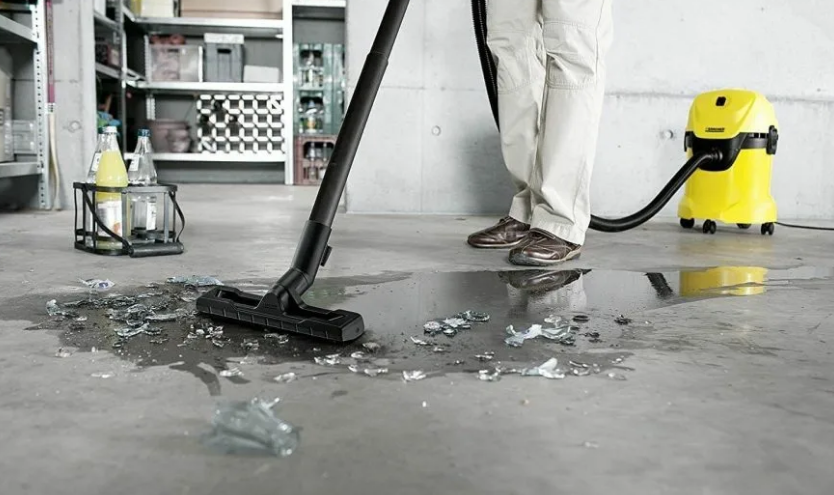
The Pros and Cons of Marble Flooring in Your Home
Marble flooring has long been associated with luxury, elegance, and timeless beauty. From ancient palaces to modern dream homes, marble continues to be a top flooring choice for homeowners who want to make a statement. But before you decide to install marble floors in your home, it’s important to weigh both the advantages and disadvantages. This guide will break down everything you need to know—clearly, simply, and without the heavy-duty jargon—so you can make an informed decision.
Whether you’re remodeling your kitchen, upgrading your bathroom, or building a new home from the ground up, here’s what you need to know about marble flooring.
What Is Marble Flooring?
Marble is a natural stone formed from limestone under high pressure and temperature. The result? A hard, dense stone with beautiful veining and unique color patterns. It comes in many finishes, such as polished, honed, or tumbled, giving you different looks and feels depending on your personal style.
Marble has been a top pick for centuries, used in everything from Roman temples to today’s upscale homes. It’s not just flooring—it’s a design statement. Companies like Alltimate Floors offer a wide variety of marble tiles to match your home’s aesthetic and layout.
The Pros of Marble Flooring
Let’s start with the reasons why so many homeowners fall in love with marble flooring.
1. Elegant and Luxurious Appearance
There’s a reason marble is often found in luxury homes, five-star hotels, and upscale restaurants. Its glossy finish and rich veining give any room a touch of sophistication. Whether you go for classic white Carrara or dramatic black Marquina, marble adds a wow factor that’s hard to beat.
2. Natural and Unique Patterns
No two marble tiles are the same. The veins and color variations are formed naturally over thousands of years, meaning each tile is truly one-of-a-kind. This natural variation adds visual interest and character to your space.
At Alltimate Floors, the curated collection of marble tiles highlights the natural beauty of the stone, offering options that range from soft and subtle to bold and dramatic.
3. Durability When Maintained Properly
Marble is a dense, strong stone that can last for decades with the right care. In low-traffic areas or with regular maintenance, marble floors can keep their luster for years. For homeowners willing to put in a little effort, the long-term payoff can be significant.
4. Cool Surface for Warm Climates
Live in a hot climate? Marble stays cool underfoot, making it a practical choice for bedrooms, kitchens, and bathrooms in warmer regions. If you’re in the South or anywhere with a lot of sun, marble flooring can help keep your home feeling fresh.
5. Increased Home Value
Because of its reputation for elegance and luxury, marble flooring can add value to your home. Buyers often associate marble with high-end living, and that can translate into a stronger resale value down the road.
The Cons of Marble Flooring
As beautiful as marble is, it’s not without its drawbacks. Here are the most common concerns homeowners face.
1. High Cost
There’s no getting around it—marble is expensive. The cost of materials alone is higher than many other flooring options, and professional installation adds even more. However, trusted providers like Alltimate Floors often offer competitive pricing and promotions that help homeowners stay within budget.
2. Requires Regular Maintenance
Marble is porous, which means it absorbs liquids. That beautiful white tile in your bathroom could stain if you spill red wine, coffee, or even orange juice on it. To protect it, marble floors need to be sealed regularly (at least once a year, sometimes more).
3. Prone to Scratches and Etching
Marble can scratch easily, especially if you have pets or heavy furniture. It’s also prone to etching—those dull spots that appear when acidic substances like lemon juice or vinegar come in contact with the stone. Using mats and felt pads can help reduce damage, but care is always needed.
4. Slippery When Wet
Polished marble looks amazing, but it can be very slippery when wet. This makes it a potential hazard, especially in bathrooms, entryways, or around pools. If safety is a concern, consider a honed finish for more traction or add rugs in high-traffic areas.
5. Cold Underfoot in Winter
While the cool surface of marble is a perk in warm climates, it can be less desirable in cold regions or during winter. However, this can be solved with area rugs or underfloor heating systems, which many modern homeowners are incorporating anyway.
Best Rooms for Marble Flooring
Not all rooms are created equal when it comes to marble. Here’s where it tends to shine:
-
Foyers and entryways: Create a stunning first impression.
-
Bathrooms: Adds a spa-like feel when paired with modern fixtures.
-
Kitchens: High-end look, though be careful with spills and stains.
-
Living rooms: An elegant backdrop for gatherings and décor.
-
Hallways: Especially when using marble in patterns or borders.
Working with flooring specialists like Alltimate Floors ensures you get the right type of marble for each room, from non-slip finishes to thicker tiles for high-traffic areas.
Tips for Caring for Marble Floors
If you’re leaning toward marble flooring, you’ll want to keep it looking its best. Here are a few simple tips:
-
Seal regularly: This helps prevent stains and etching.
-
Wipe up spills immediately: Don’t let liquids sit on the surface.
-
Use pH-neutral cleaners: Avoid harsh or acidic products.
-
Place rugs in high-traffic areas: Especially where kids or pets roam.
-
Use felt pads under furniture: To reduce scratches and scuffs.
Need expert advice on care? The team at Alltimate Floors can walk you through a maintenance plan specific to your marble type and finish.
Marble vs. Other Flooring Options
If you’re still deciding whether marble is right for you, here’s a quick comparison against other common materials:
| Feature | Marble | Porcelain Tile | Hardwood | Vinyl |
|---|---|---|---|---|
| Appearance | Natural, luxurious | Durable, versatile | Warm, natural | Budget-friendly |
| Durability | High (with care) | Very high | Moderate | Moderate |
| Maintenance | High | Low | Moderate | Low |
| Cost | High | Medium | High | Low |
| Lifespan | 20+ years | 20+ years | 15–30 years | 10–15 years |
Should You Choose Marble Flooring?
That depends on your lifestyle, budget, and design goals. If you’re looking for a statement floor with timeless appeal and you’re okay with a bit of maintenance, marble could be a beautiful and valuable addition to your home. However, if you have young kids, pets, or a busy household, you might want to consider your options carefully—or select marble for lower-traffic spaces.
The key is working with trusted professionals who can help you make the best choice for your specific needs. That’s where Alltimate Floors comes in. Their expert team can guide you through every step—from selecting the right marble to professional installation and long-term care.
Final Thoughts
Marble flooring brings timeless beauty and natural elegance into any home. Its luxurious look and unique patterns can elevate the design of your space—but it’s not for everyone. Before investing, consider both the pros and the cons, and think about how it fits into your lifestyle.
If you’re ready to explore marble options or want to see how it would look in your home, reach out to the flooring experts at Alltimate Floors. With a wide variety of natural stone choices, professional installation services, and knowledgeable staff, they’ll help turn your vision into a reality.
FAQs
1. Is marble flooring good for homes with pets?
Marble can scratch easily, so it might not be the best choice if you have large dogs or active pets. However, using area rugs and trimming pet nails regularly can help reduce wear. Talk to a flooring expert at Alltimate Floors to see if a more durable finish is available for your lifestyle.
2. How often does marble flooring need to be sealed?
Typically, marble should be sealed once a year. However, in high-traffic areas or homes with kids and pets, sealing every 6–9 months might be necessary. Your provider, like Alltimate Floors, can recommend the best sealant schedule based on your usage.
3. Can I install marble floors myself?
It’s not recommended. Marble installation requires specialized tools and techniques, including leveling and sealing. Uneven tiles or poor sealing can lead to major issues later. Always hire a professional installer—Alltimate Floors offers expert installation you can trust.






